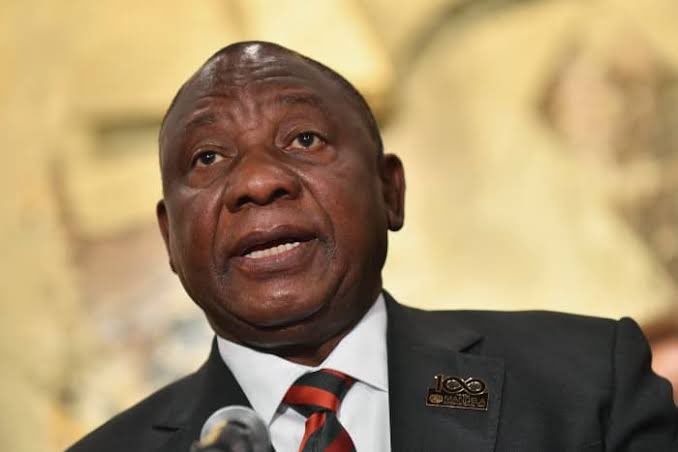Ramaphosa was allegedly targeted in a series of online threats that led to the brief court appearance of a 28-year-old man, Sabelo Masango, in the Cape Town Magistrates Court on Monday. The threats extended beyond President Cyril Ramaphosa to include Cape Town Mayor Geordin Hill-Lewis and a prominent businesswoman. The case, which involves charges under South Africa’s Cybercrimes Act, has sparked renewed concerns about the abuse of digital platforms to target public figures.
Masango, arrested in Germiston on Friday, allegedly sent a series of threatening messages to a Cape Town-based CEO last week. In those messages, he also issued threats against President Ramaphosa and Mayor Hill-Lewis.
The accused now faces five counts of contravening the Cybercrimes Act and two counts of assault, all related to the threatening texts. Authorities believe the intimidation campaign was deliberate and calculated, raising the seriousness of the case.
Wearing navy blue tracksuit pants and a short-sleeved T-shirt, Masango stood in the dock and told the court that he has legal representatives based in both Italy and South Africa. Despite this, the matter was postponed until 2 June to allow him time to confirm his legal representation.
Police say the messages sent by Masango were explicit in their threats and violated several provisions of the Cybercrimes Act, legislation aimed at curbing online abuse and digital intimidation. The act was introduced to deal with the increasing number of cyber threats, hacking incidents, and the misuse of social media platforms in South Africa.
Ramaphosa Threatened: Alleged Cyberbully Appears in Cape Town Court
The State has emphasized that threats against a sitting president such as Ramaphosa cannot be taken lightly and warrant swift legal action. According to investigators, the accused’s messages were not only violent in tone but also intended to instill fear in their recipients.
While the case is still in its early stages, the gravity of the accusations has led to heightened attention. Cybersecurity experts have noted that high-profile individuals—including politicians and business leaders—are increasingly becoming targets of online threats. The matter has also sparked conversations about digital accountability and the need for stricter enforcement of laws related to cyber harassment and threats.
In recent years, South Africa has faced challenges in policing online behavior, especially when it involves politically sensitive targets like Ramaphosa. Legal analysts believe this case could set a precedent for how similar future threats are prosecuted under the relatively new Cybercrimes Act.
Masango’s next court appearance on 2 June will determine the trajectory of the case, especially regarding his legal representation and whether a bail application will follow. The court is expected to closely examine the contents of the messages and determine if the threats pose a credible risk to those involved.
If convicted, Masango could face significant penalties under the Cybercrimes Act, which allows for prison sentences for individuals found guilty of sending threatening electronic communications. The charges of assault may also carry further legal consequences, depending on the court’s findings.
According to legal experts, courts typically consider the intent behind such communications, the context in which they were made, and the credibility of the threat. If prosecutors can prove that Masango intended to cause harm or fear, the sentencing could be severe.
In addition to the legal proceedings, the case has raised broader concerns about how public figures like Ramaphosa are protected from cyber threats and harassment. Some observers have called for greater investment in cybersecurity infrastructure and more robust response systems to quickly identify and neutralize such threats.
Public reaction to the case has been mixed. While some citizens view the arrest as a necessary step in upholding the rule of law, others are questioning whether the laws governing digital conduct are being applied consistently across all segments of society.
With President Ramaphosa already under pressure due to political and economic challenges, this latest development introduces another dimension to the national discourse on safety, governance, and digital rights. The president’s office has not commented on the matter, citing the ongoing legal process.
As the case unfolds, attention will remain focused on how the justice system handles it, particularly in reinforcing public confidence in the legal protections afforded to leaders and citizens alike in the digital age. The outcome may shape future interpretations of the Cybercrimes Act and highlight the importance of secure and responsible online behavior in a connected world.
Source- EWN

